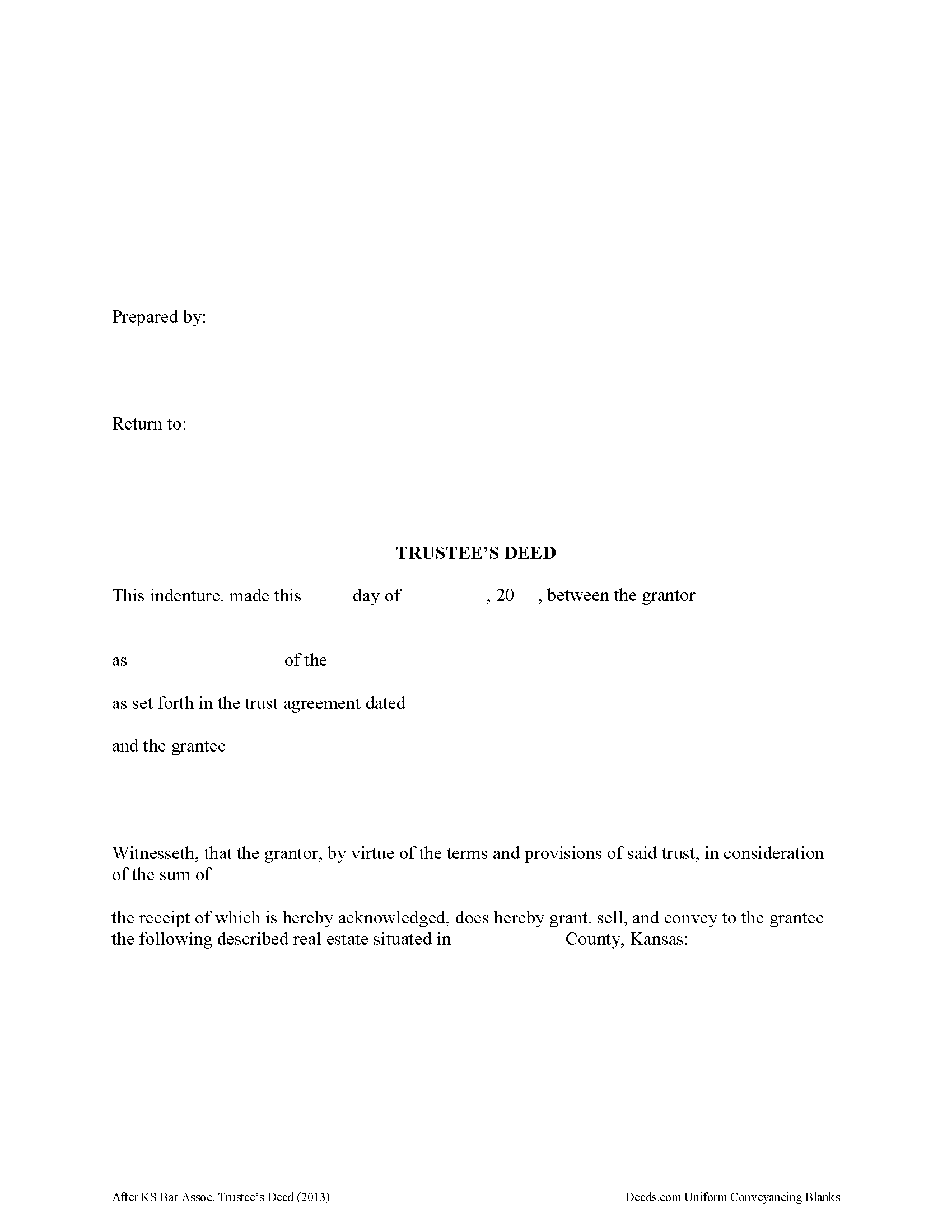Download Kansas Trustee Deed Legal Forms

Kansas Trustee Deed Overview

A trustee's deed is used in trust administration to convey real property from a trust. Unlike other real estate deeds, which are named for the type of warranties of title they contain, the trustee's deed is named for the person executing the document.
The trustee is the fiduciary appointed in the trust instrument to represent a trust. Since the trust as an entity cannot hold title to real property, property is transferred to the trust in the name of the trustee-as-representative. The settlor is the person executing the trust instrument and funding the trust with assets.
In a trustee's deed, then, the trustee is the grantor conveying title to the grantee. In Kansas, the trustee's deed is a special warranty deed containing covenants that the grantor defends the title against claims by, through, or under the grantor and grantor's heirs. Further, the deed warrants that the grantor is lawfully seized of the property, has the right to convey the property, and that the property is free from encumbrances, other than those which may be listed in the form. The warranty is limited in that the grantor does not warrant title against those claiming a right, interest, or title that arose prior to, or separate from, the grantor's interest in the property.
Apart from the information above, the trustee's deed's granting clause references the name and date of the trust under which the trustee is acting, as well as the role of the trustee (co-trustee, successor trustee, etc.). The deed requires all the necessary information for documents affecting real property in the state of Kansas, including a recitation of the legal description of the real estate.
The Kansas trustee's deed form also carries a certification that the grantor is the duly appointed, qualified, and acting trustee of the trust, with a reference to the article or section from the trust instrument where the trustee is granted the authority to convey trust property. Further, the deed certifies that the trust is in full force and effect and has not been amended or revoked. These statements are also found in a certification of trust, a document that a trustee may need to furnish, depending on the transaction taking place.
All acting trustees need to sign the deed in the presence of a notary public before submitting the deed for recording in the county in which the real property is located.
(Kansas Trustee Deed Package includes form, guidelines, and completed example)
As each situation is unique, contact a lawyer for guidance.